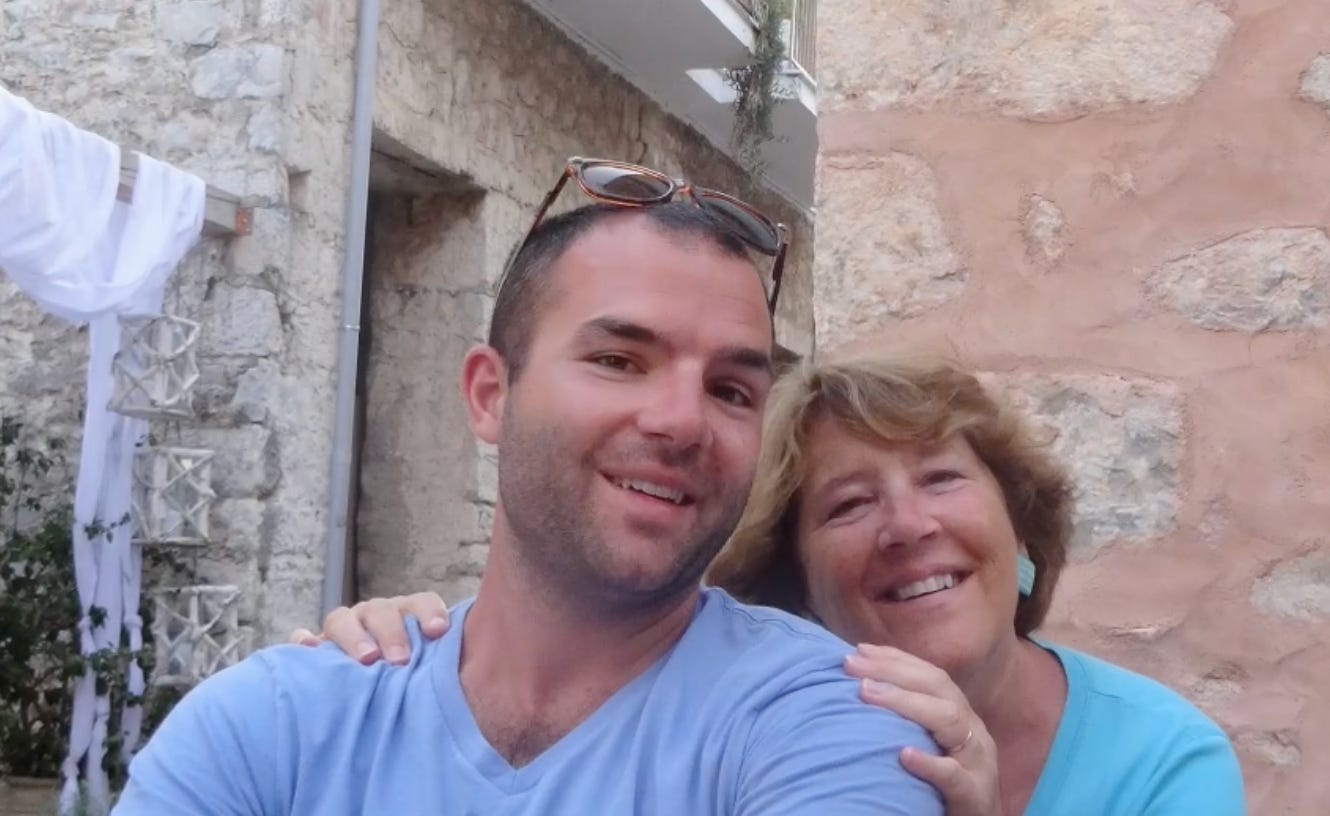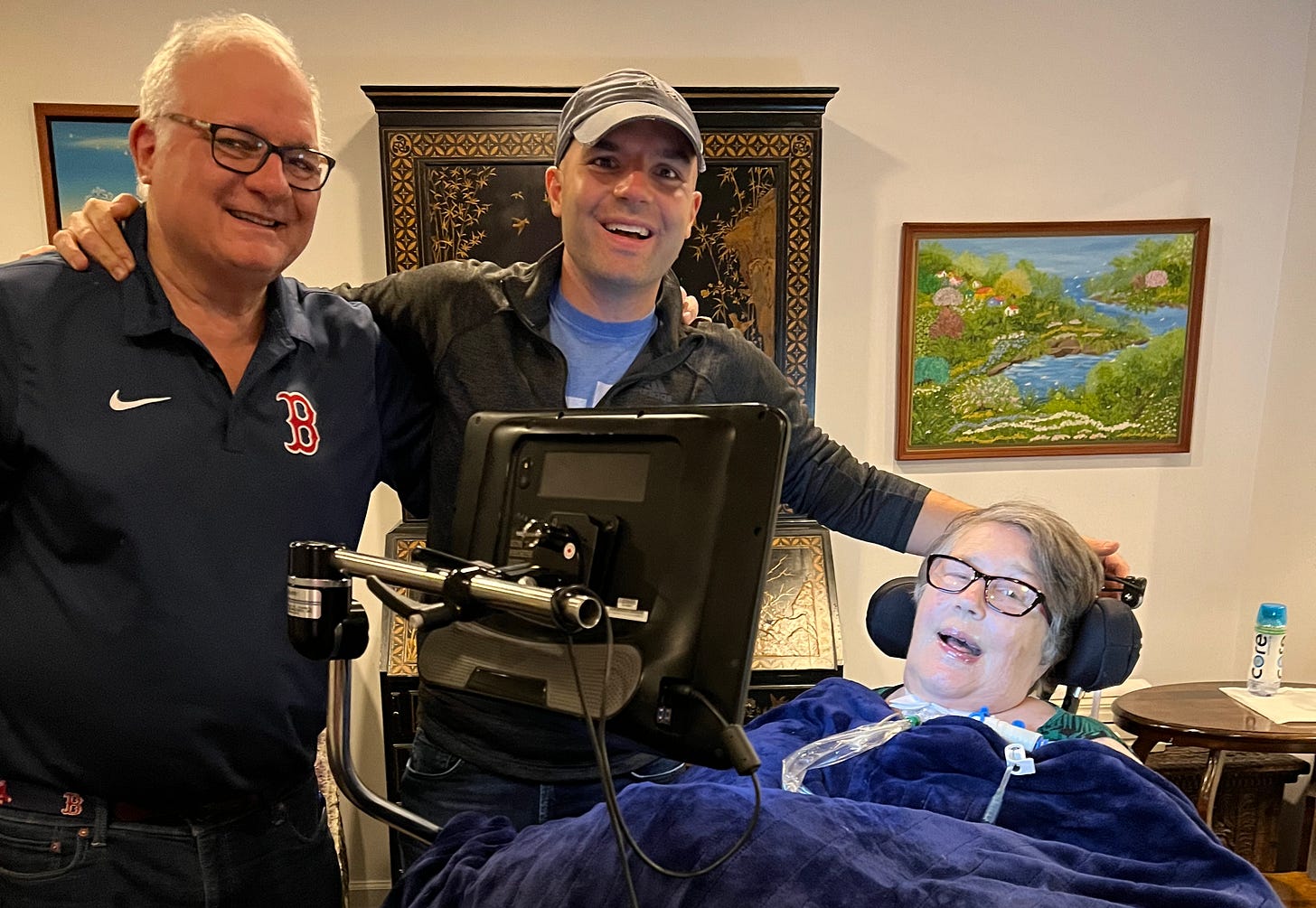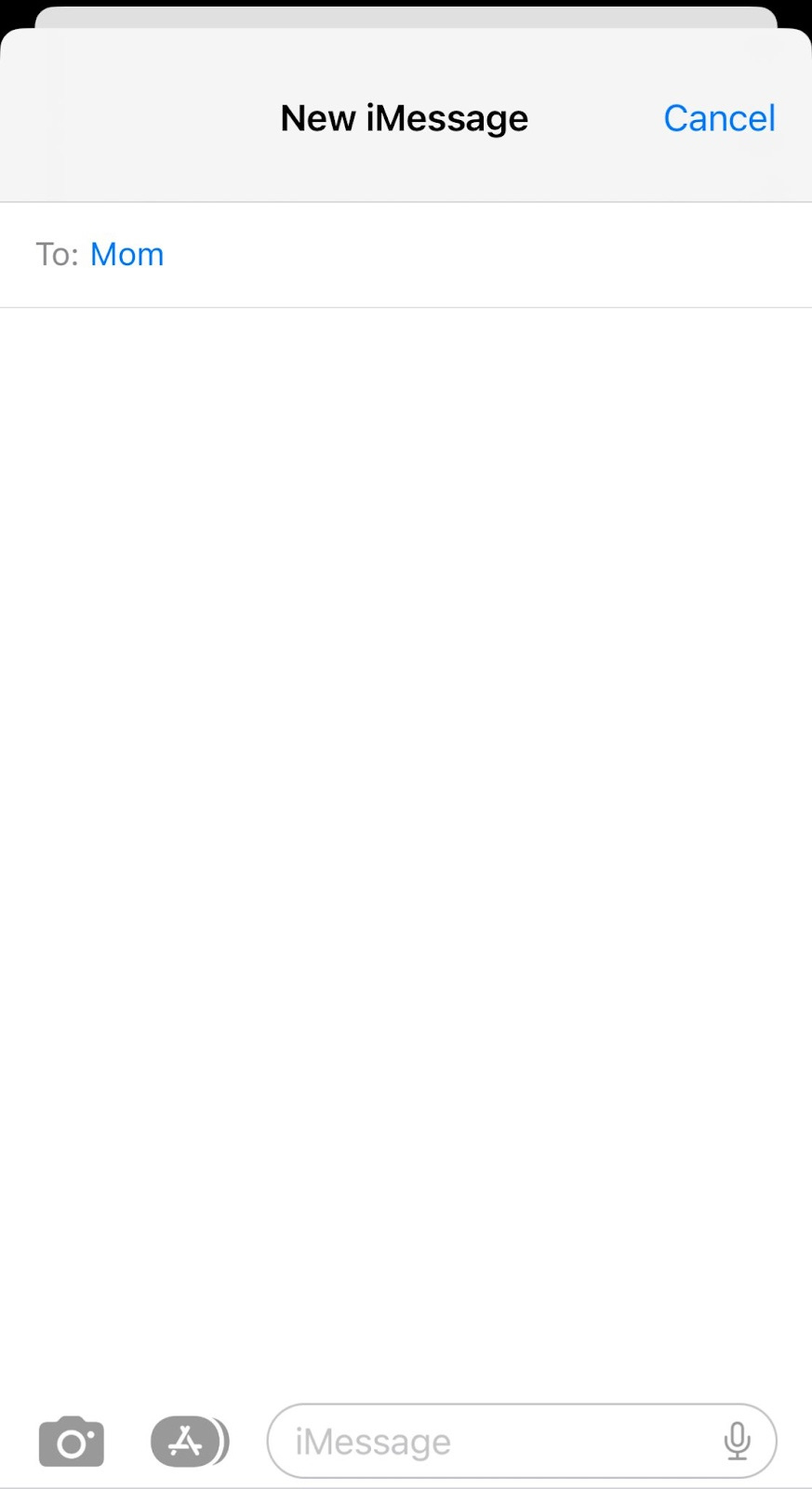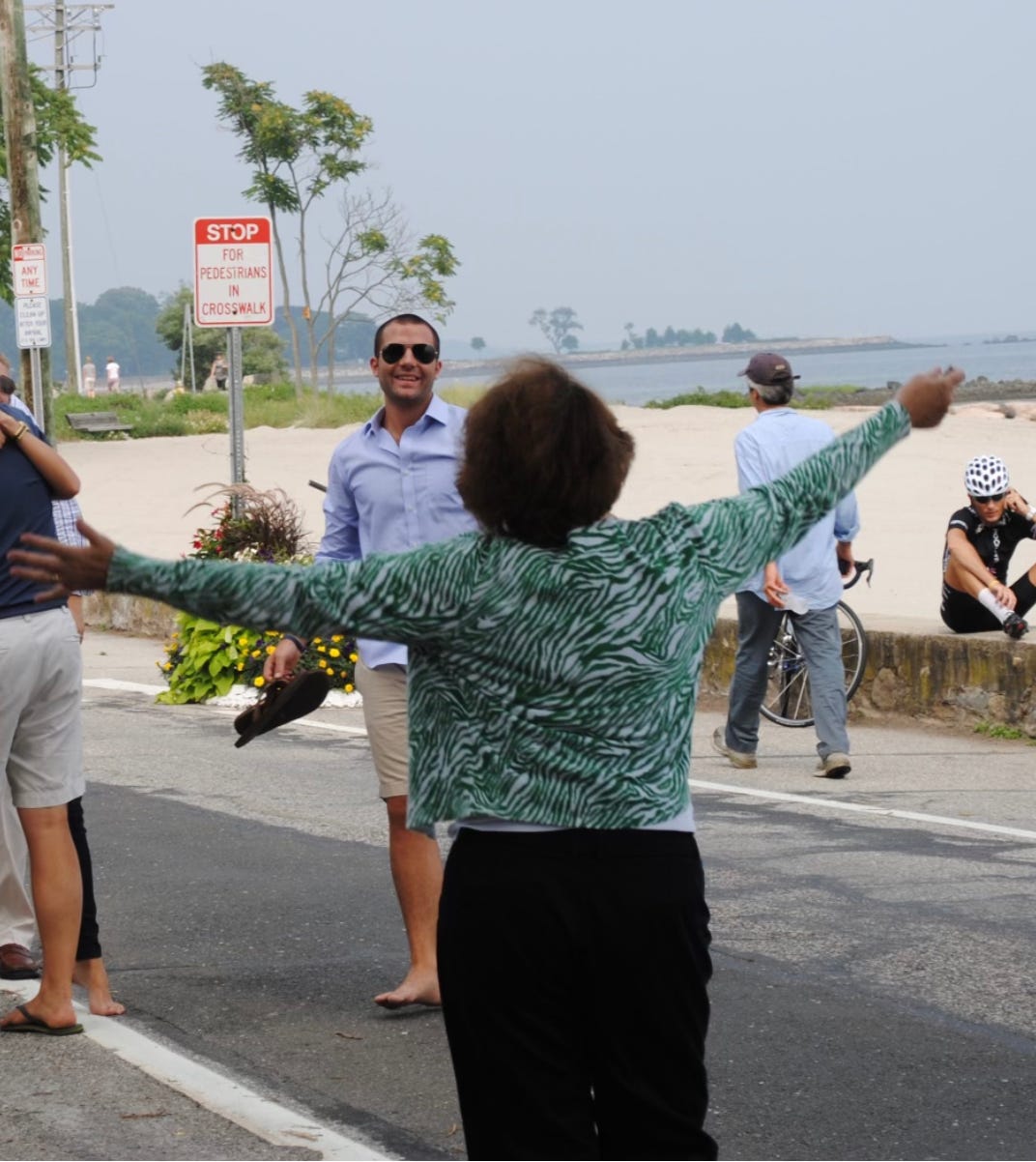Celebrate the wins
A reflection about Mom, loss and the stuff that endures.
We said goodbye to Mom on Monday.
It’s been a month since she passed and a lot of people wanted to pay their respects. It rained all day, and we worried that the awful downpour might keep folks from making the trip to her Celebration of Life. Boy, were we wrong.
People were everywhere, spilling out into the mezzanine and filling up the old hallways of The Inn At Longshore. People flew in from all over the world to celebrate Mom. At one point I looked out from the stage and saw people back in the lobby bobbing their heads to try to get a view. I was told by Christine, who ran the event, that at least 450 people came, maybe 500. She asked another staffer, who had been there for years and years, for her count. “I don’t know, but I’ll tell you one thing: I’ve never seen so many people in this place.”
It was beautiful and filled with laughter and packed with oh-I-forgot-about-that! stories that make you smile until your cheeks hurt. It felt more like a reunion than a funeral. That’s what Mom wanted. She inspired so many, whether it was her fight against ALS or her decades of social work in the town or advocating for education.
I didn’t realize how many she inspired until Monday. She inspires me everyday. Even now as I write this post about loss.
People check in and see how I’m doing. And I tell them the truth. I feel closer to her than I have in years. I realize that might be a weird thing to say.
The thing about amyotrophic lateral sclerosis (ALS), a 100-percent fatal neurodegenerative disease, is that the losses just don’t stop. It killed Lou Gehrig and Stephen Hawking and Mom the same way: relentlessly. There are no cures or effective treatments. One after another, your muscles stop working. Some say it’s like quicksand. Others say it’s like being a prisoner in your own body. First, you lose the ability to drive. Then you lose the ability to walk. Then you lose the ability to eat. Then you lose the ability to talk. Finally, you lose the ability to breathe.
It’s loss after loss after loss. The day after she died, I asked Dad how he was doing. He told me something I won’t soon forget: “Tom, you have to understand, I’ve lost so much. I lost my wife yesterday, but I lost my spouse years ago.” I know what he meant by that.
My mother’s brother expressed something similar. He said it felt like Mom died three years ago when ALS took her voice. He said he had a harder time dealing with the loss of never hearing her again than her actual death. I feel that, too.
But I’ll tell you this: the brutal death march of ALS is a blessing, in some ways. At least we knew what was coming. Dan Le Batard shared with me a Jason Isbell lyric about love and death (from a song about vampires, of all things): “Maybe time running out is a gift / I'll work hard 'til the end of my shift.” It sure feels like a gift to me. Friends tell me about how shattering it is to lose a parent suddenly – a heart attack, a stroke, an operation gone wrong. They each tell me about the devastating experience of instinctively picking up the phone to text Mom, or call Dad. And they never answer.
I’ve never felt that gutpunch, or at least it’s been so long I can’t remember it. You know when you want to text someone and you type in their name and the screen instantly shows the backlog of your conversation with them? Just now, I typed in Mom’s name and this is what I see:
That’s how long it has been since I texted Mom. That’s ALS.
But I feel closer to her than ever. I feel her. Here’s what I mean by that.
When Mom died, I was away in the Tennessee mountains with my wife’s family and my girls. The next morning, I hopped on a flight out of Knoxville to home in Connecticut. Soon after I got there, Dad broke the news to me that Mom donated her brain and spinal cord to ALS research. Bits and pieces of her tissue would be in research labs all over the country, to try to help save thousands of lives.
And I think that made me cry harder than I ever have. When she was alive, she gave everything to fight this horrible disease. And at some point, she had decided, without telling anyone but Dad that, in death, she wanted to keep giving. And she did. There’s something beautiful in that.
And once I gathered myself from learning that news, he asked me, “So, do you want to see her?”
The question knocked me off balance. My father, my oldest brother and my sister had seen her in the hospital room the night she died. But my other brother and I hadn’t. If we wanted, the funeral home would provide an open-casket viewing for the immediate family, before the cremation.
So did I want to see her?
Of course. But I’m going to be honest with you, seeing her after the brain donation gave me pause. It raised all sorts of existential questions. A big one: like, is that really her? Her brain controlled everything that I loved about Mom: her soft compassion; her sharp wit; her effervescent personality; her constant thoughtfulness. Without that, is that really Mom in there? Dad told me that the funeral director assured him that we’d never be able to tell there was any sort of procedure. OK, yeah, but still.
I struggled with my decision. My reluctance was about staring at her and thinking about her empty skull and feeling like she isn't Mom anymore. It challenged my conviction that the brain is a vital part of self. I didn’t like imagining the process of the donation or seeing her like that, even with the funeral director’s assurances. Ultimately, I said yes, I would like to see her. I felt like it would be good for the family to have one last moment together. Mom would’ve liked that. The next day, we planned to see her body. Her body or her?
I didn’t have an answer. To be candid, I was really scared. Did I want that lasting memory of her? What if it was bad? What if I could tell? I wasn’t really OK with that unknown. Later that night, Dad booked a tee time at Longshore, the public golf course in town, for the following morning.
The four of us – me, Dad, and my two older brothers – hadn’t played Longshore in over five years. We used to play there all the time, but in recent years, the brutality of ALS meant that we couldn’t pull Dad away from caregiving for Mom. Not since Mom got sick. It might seem trivial, but I deeply admire this aspect about my father – his unflinching willingness to give up golf, the thing he loved most, to tend to the person he loved most.
So Dad felt it was time to play golf again. Which was great. I set my alarm clock for 6:15 am. Going to bed that night, I was a nervous wreck about seeing her body. Eventually, the nerves must have faded because somewhere along the way I drifted off to sleep.
And then: Mom visited me.
In this dream, I’m at this golf tournament surrounded by crowds of people. I hear over the speaker, “Tom Haberstroh and Charlie Haberstroh are next on the first tee.” I walk the winding cart paths with my father to find the first hole. Spectators stop us to offer gratitude for all the work we’ve been doing to end this horrible disease. We tell them thanks. It means a lot. We’ll keep fighting. But we also have to find the first hole.
We keep walking through the crowds and we can’t find the first tee box. I’m getting anxious. I can’t find it. We twist and turn around the hills, curl around the bends, hoping to see our destination. Where is this f-ing thing? I’m losing it.
And that’s when I turn a corner and I see her. Mom. She’s standing in the middle of the cart path, smiling back at me. She might even be glowing. God, it feels like she is.
She’s wearing a green blouse and khaki capri pants, an outfit that pre-ALS Mom used to wear to work all the time. And here’s the thing: she’s standing. She had been paralyzed in a hospital bed for the last two years, but here she is, in my dream, walking toward me. I run up to her. She runs to me. And she gives me the biggest hug, a power hug that only a mother could give. I felt the thump of that hug in my chest. As we’re holding each other, I’m waiting for her to say something. She doesn’t say anything. She just holds me.
Finally, I whisper to her, “It’s OK Mom, you can go now.”
And then I woke up.
I promise you, Mom hadn’t visited me in my dreams once in the battle with ALS. And then, when I needed her, she came and held me until it was OK. When my eyes opened, the anxiety washed away. I checked the clock. 6:09 am. My alarm clock was set for six minutes later. I don’t know how dream scheduling works but if that dream was booked for 6:20 am, I’m damn sure I wouldn’t have seen her.
But she got there just in time. What are the odds of that? She knew, I’m convinced.
She was making sure I was OK. And after that hug, I was. We saw her later that day. Her.
So how am I doing?
I have my moments. Like right now, typing this post. The tears are flowing – the type of crying where the teardrops fall into your lap.
But I’m doing OK because I know she’s free. She visits me all the time. I see her everywhere.
She’s with me, and with all those who came to her celebration on Monday. She is free from ALS. And she’s with us, in our hearts. I can feel that thump in my chest.
After all of the loss, this feels like a win.






Tom,
I lost my mom 12 years ago, far too young for me and her, and reading your message made me cry all over again. It was sudden, and you talk in your story about the gut punch of sudden loss and I think all I can say is that there's no good way to lose someone. Losing someone all at once is hard, and losing someone over years is hard.
Thank you for your story, thank you for sharing. I'm not going to tell you it gets easier with time because that's only partially true. I can tell you that people are good at forming scars and this will be a scars, but scars are just memories, and we should cherish those.
I hope all of you who care so deeply for your mom can support each other now and remind each other of the wonder person she clearly was.
This hits so close to home for me. I lost my mom to cancer in 2018. My dad had the same unwavering support for her in her final years, giving up anything he could to be able to care for her. Similarly to you, we had time to brace ourselves and say things that maybe we never would’ve said if it had been sudden. It’s still loss, though, and still hurts. My dream didn’t come until earlier this year. I told my mom about my kids she never got to meet, and she told me how proud of me she was. It’s been a while since I’ve let the tears flow, but they came back today after reading your mom’s story. Thank you for sharing this.